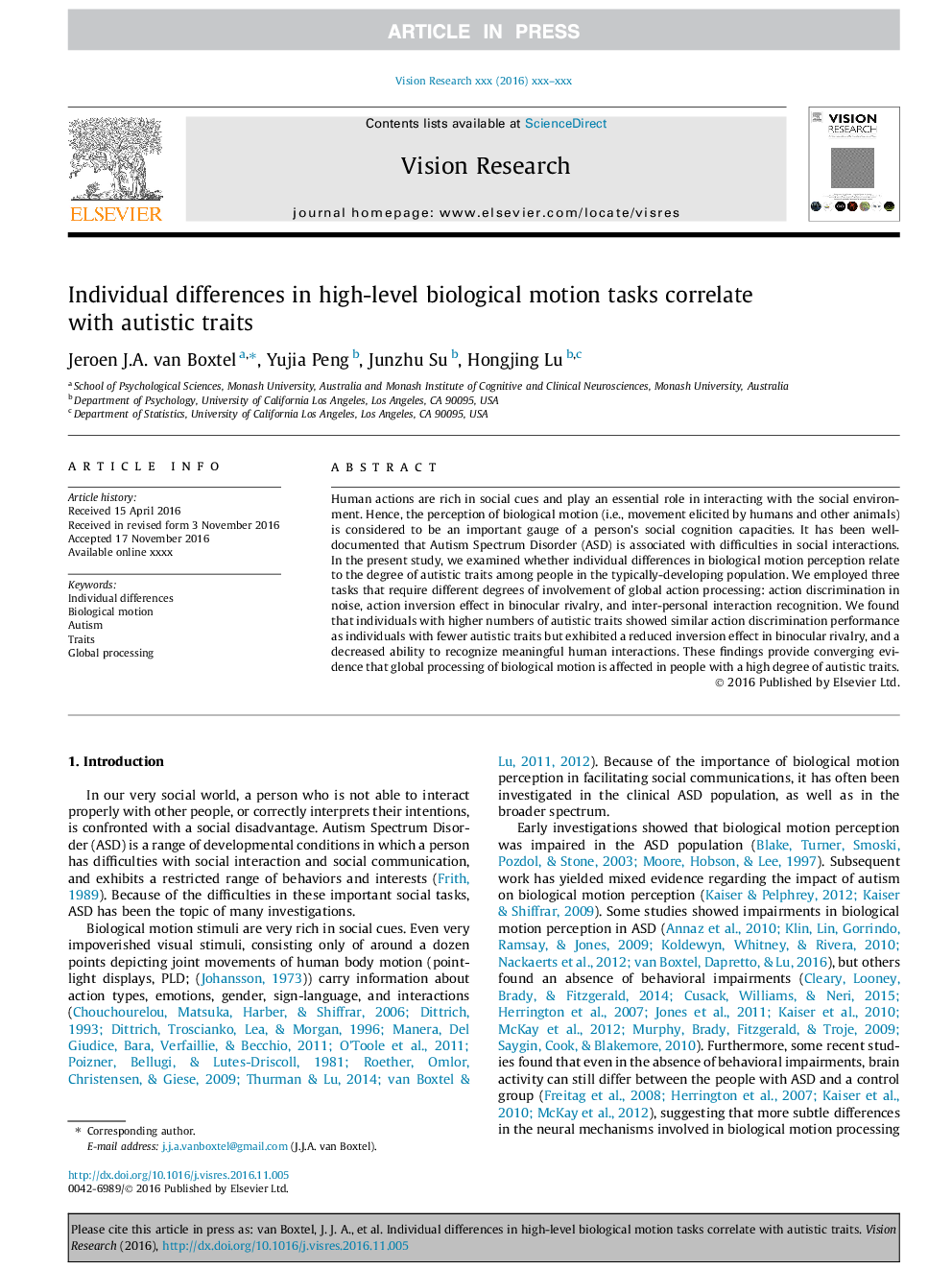| Article ID | Journal | Published Year | Pages | File Type |
|---|---|---|---|---|
| 8795355 | Vision Research | 2017 | 9 Pages |
Abstract
Human actions are rich in social cues and play an essential role in interacting with the social environment. Hence, the perception of biological motion (i.e., movement elicited by humans and other animals) is considered to be an important gauge of a person's social cognition capacities. It has been well-documented that Autism Spectrum Disorder (ASD) is associated with difficulties in social interactions. In the present study, we examined whether individual differences in biological motion perception relate to the degree of autistic traits among people in the typically-developing population. We employed three tasks that require different degrees of involvement of global action processing: action discrimination in noise, action inversion effect in binocular rivalry, and inter-personal interaction recognition. We found that individuals with higher numbers of autistic traits showed similar action discrimination performance as individuals with fewer autistic traits but exhibited a reduced inversion effect in binocular rivalry, and a decreased ability to recognize meaningful human interactions. These findings provide converging evidence that global processing of biological motion is affected in people with a high degree of autistic traits.
Related Topics
Life Sciences
Neuroscience
Sensory Systems
Authors
Jeroen J.A. van Boxtel, Yujia Peng, Junzhu Su, Hongjing Lu,
